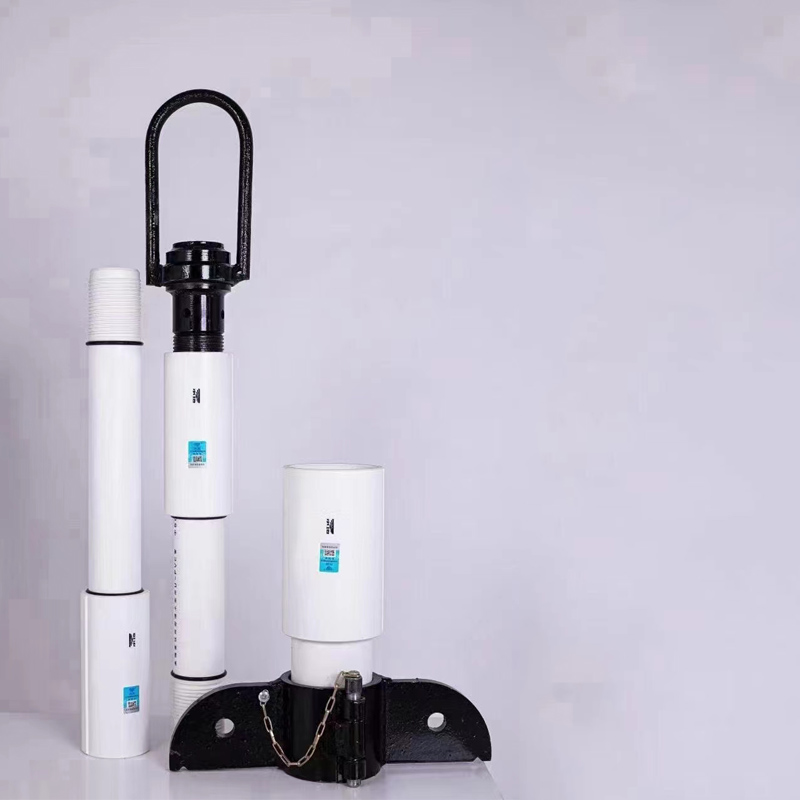Dec . 14, 2024 06:36 Back to list
Applications and Benefits of Wholesale HDPE Pipe in Various Industries
The Versatile Applications of Wholesale HDPE Pipe
High-Density Polyethylene (HDPE) pipe has become a staple in numerous industries due to its durability, flexibility, and resistance to corrosion. As industries increasingly seek efficient and sustainable solutions, the use of wholesale HDPE pipes has gained significant traction. This article explores the various applications of HDPE pipes across different sectors and their benefits.
Understanding HDPE Pipe
HDPE pipes are made from high-density polyethylene, a thermoplastic polymer known for its high strength-to-density ratio. They are lightweight yet extremely robust, making them an ideal choice for a wide range of applications. Unlike traditional materials such as steel and PVC, HDPE pipes are flexible, which allows for ease of installation and adaptability in various environmental conditions.
Water Supply and Distribution
One of the most common uses of wholesale HDPE pipes is in water supply and distribution systems. Municipalities and water utility companies favor HDPE due to its resistance to rust, corrosion, and chemical leaching. This ensures that the water quality remains high throughout its distribution, safeguarding public health. Additionally, the smooth inner surface of HDPE pipes minimizes friction and enhances flow efficiency, resulting in reduced operational costs.
Sewage and Wastewater Systems
HDPE pipes are increasingly used in sewage and wastewater management systems. Their resistance to a wide range of chemicals makes them suitable for carrying effluent and wastewater. With the growing focus on environmental sustainability, the longevity and reliability of HDPE pipes reduce the need for frequent replacements, ultimately lowering maintenance costs. Furthermore, the flexibility of these pipes allows for trenchless installation methods, minimizing land disruption and the environmental impact.
Agricultural Applications
wholesale hdpe pipe use

In agriculture, HDPE pipes play a crucial role in irrigation systems. Their lightweight nature simplifies installation and can significantly improve water management efficiency. HDPE pipes can also be used for drainage systems, helping to manage excess water and maintain soil health. The durability of these pipes means they can withstand harsh agricultural conditions, ensuring long-term performance.
Industrial Uses
Various industries, including oil and gas, mining, and chemical production, utilize HDPE pipes for their transportation needs. Their ability to handle a wide range of chemicals and resist abrasion makes them ideal for moving aggressive substances. Additionally, HDPE’s low thermal conductivity is advantageous in hot climates, preventing heat loss during transportation. The strength and durability of HDPE pipes also contribute to increased safety in industrial environments.
Telecommunications and Electrical
The telecommunications industry uses HDPE pipes for both fiber optic and data cable protection. These pipes provide a robust, weather-resistant conduit that safeguards sensitive electronic wiring from environmental damage. In addition to protection, the flexibility of HDPE makes it easier to install in various terrains, ensuring rapid deployment of communication networks.
Environmental Benefits
The move towards using HDPE pipes also aligns with sustainability goals. HDPE is recyclable, promoting a circular economy. Moreover, its durability reduces the frequency of replacements, conserving resources and minimizing waste. Utilizing HDPE in infrastructure projects supports efforts to reduce the carbon footprint, as the material can be manufactured and transported with less energy consumption compared to traditional materials.
Conclusion
The versatility of wholesale HDPE pipes is evident across a multitude of applications, including water supply, sewage systems, agriculture, industrial uses, and telecommunications. Their durability, resistance to corrosion, and ease of installation underline the reasons they have become the preferred choice for many industries. As the demand for efficient and sustainable infrastructure continues to grow, HDPE pipes will undoubtedly play a pivotal role in shaping the future of various sectors, demonstrating that they are not just a trend, but a long-term solution to modern challenges. With ongoing advancements in manufacturing technology, the future looks promising for HDPE pipes and their indispensable role in construction and infrastructure.
-
High-Quality PVC Borehole Pipes Durable & Versatile Pipe Solutions
NewsJul.08,2025
-
High-Quality PVC Perforated Pipes for Efficient Drainage Leading Manufacturers & Factories
NewsJul.08,2025
-
High-Quality PVC Borehole Pipes Durable Pipe Solutions by Leading Manufacturer
NewsJul.08,2025
-
High-Quality PVC Borehole Pipes Reliable PVC Pipe Manufacturer Solutions
NewsJul.07,2025
-
High-Quality UPVC Drain Pipes Durable HDPE & Drain Pipe Solutions
NewsJul.07,2025
-
High-Quality Conduit Pipes & HDPE Conduit Fittings Manufacturer Reliable Factory Supply
NewsJul.06,2025

